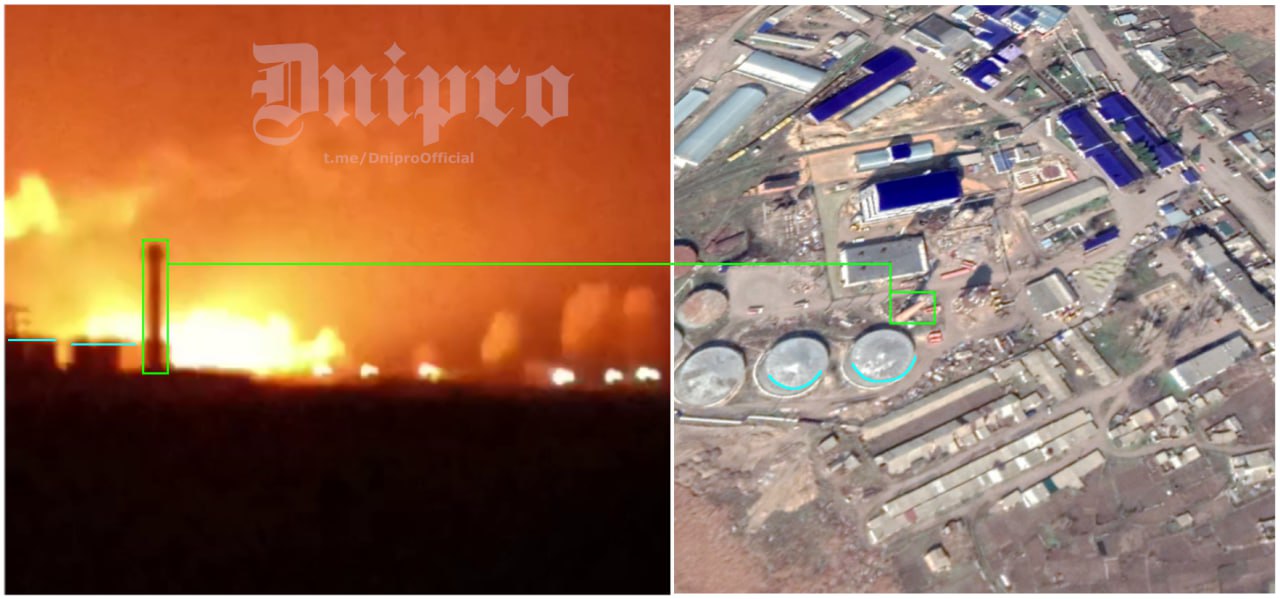Drones Attack Alcohol Factory in Voronezh Oblast
28 October, 2024 The moment when the drone hit the alcohol factory on October 27, 2024. Freeze frame from the video Drones attacked an alcohol factory in the village of Krasnoye, in the Voronezh oblast of Russia.
The video of the fire and drone strikes was posted on the Exilenova+ Telegram channel. However, it was labeled as a strike on the enterprise in Novokhopersk, 10 km from Krasnoye. The attack was geolocated by the CyberBoroshno community:
 Geolocation of the attack on the alcohol factory in the village of Krasnoye on October 27, 2024.
Geolocation of the attack on the alcohol factory in the village of Krasnoye on October 27, 2024.
Source: Cyber Boroshno
The video of the attack drone's approach after a successful previous attack demonstrates the scale of the fire and the detonation of the warehouse: The Ethanol Spirit factory produces ethyl alcohol and various animal feeds from by-products of ethanol production. This enterprise is one of the most powerful in Russia, and in 2021 it was modernized for a total of RUB 1 billion, or about USD 10 million.
It built its own thermal power plant, external storage tanks, a workshop for processing grain into raw materials for alcohol, and others. According to the Kommersant newspaper, the company works mainly for Russian government orders. We tried to analyze why alcohol is important for the Russian army in this week's stream, so start at 43:50:
In June 2022, the Russian government publication Parlamentskaya Gazeta reported on a proposal by the Cabinet of Ministers to ease regulation of ethyl alcohol production for the benefit of the military-industrial complex. Already in September 2022, the same publication announced that the only enterprise producing ethyl alcohol from non-food raw materials that is most suitable for the military-industrial complex is the Kirovskiy Biochemical Plant, 1200 km from the border with Ukraine.
Its product is hydrolyzed alcohol derived from wood sawdust, and it was its production that they wanted to exempt from the restrictions.
In terms of production, it is believed that ethyl alcohol from grain is more efficient than wood, but the chemical composition of the latter is more favorable for the defense industry.